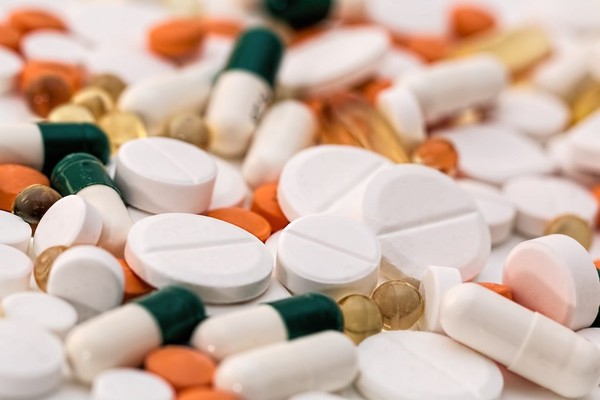The government said pharmaceutical companies would have to cover the costs of re-prescribing and re-dispensing drugs incurred by detection of impurity next year.
The announcement came as the health authorities changed how they charge re-prescription/re-dispending costs of drugs to replace medicines containing a foreign substance.

To detect impurities in ranitidine, nizatidine, and metformin in the past years, the health authorities will claim about 2.9 billion won ($2.4 million) from 108 drugmakers from January 2022.
The Ministry of Health and Welfare released its plan on responding to drugs containing impurities at a meeting of the Health Insurance Policy Review Committee on Wednesday.
According to the ministry, five medicines have been found to have impurities since 2018 -- valsartan in July 2018, ranitidine in September 2019, nizatidine in November 2019, metformin in May 2020, and losartan in November 2021.
The Ministry of Food and Drug Safety (MFDS) recently found azido impurity in hypertension treatment losartan in 295 items made by 98 companies. The products exceeded the allowable daily level (1.5 ㎍ per day) of azido or had a risk of exceeding it.
Unlike N-nitrosodimethylamine (NDMA), which was detected in the four other agents, azido was found only in losartan drugs. Azido’s mutagenicity has been confirmed, but carcinogenicity has not been verified.
Pharmaceutical companies voluntarily recall losartan products. Eighty companies recalled 241 products entirely and 18 companies, 54 products, partially. Seven drugmakers have yet to recall 11 products.
After consultation with the MFDS, doctors’ associations, hospital associations, pharmacists, pharmaceutical associations, and drugmakers, the health and welfare ministry decided to charge drugmakers for the costs of re-prescribing and re-dispensing drugs.
Following the government’s decision, a pharmaceutical company must pay the re-prescribing and re-dispensing costs directly to medical institutions after detecting impurities.
In the past, the National Health Insurance Service (NHIS) made payment first and claimed the cost from a pharmaceutical company.
The health and welfare ministry said it would claim 2.94 billion won from 108 pharmaceutical firms from January 2022 for the cost of re-prescribing and re-dispending drugs after the detection of impurities in ranitidine nizatidine and metformin.
At the Monday meeting of the Health Insurance Policy Review Committee, the health and welfare ministry disclosed the status of litigation between the ministry and pharmaceutical companies regarding the detection of impurity in valsartan.
The MFDS ordered a temporary sale suspension and a recall in the valsartan case. The health ministry and the NHIS stopped the health insurance coverage for the drug and paid the cost of re-prescribing and re-dispensing drugs to replace the remaining valsartan medication. In this case, patients did not have to pay for the re-prescribing and re-dispending.
As a result, the NHIS had to pay 4.97 billion won to cover the cost. Then, the NHIS asked 69 drugmakers to pay 2.3 billion won for the cost of replacing valsartan with other drugs due to the detection of impurity. In defiance, 36 companies filed a lawsuit to confirm the absence of debt against the NHIS' claim for damages.
In September, the Seoul Central District Court recognized the NHIS’ right to claim damages and the drugmakers’ liability for compensation in the first trial.
In October, the 34 companies filed an appeal.

